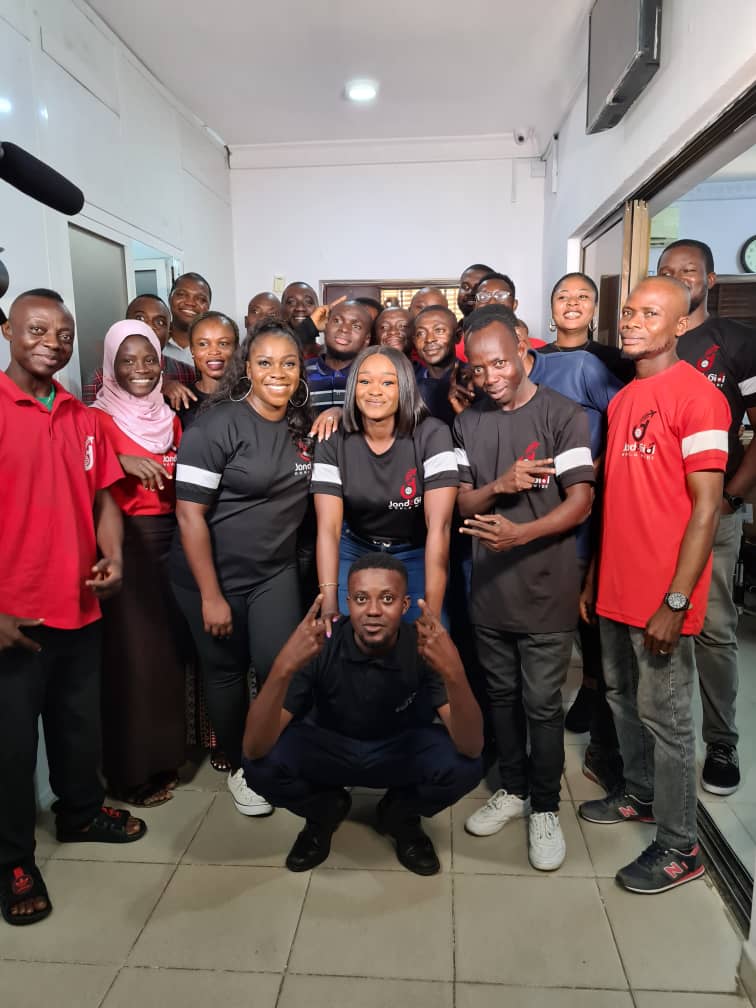Africa’s burgeoning logistics sector is ripe for disruption and these two Nigerian founders are doing just that. Ujama Akpata and Kikelomo Fola -Ogunniya founded Jand2Gidi out of frustration with existing delivery companies.
9 years later, they are marrying technology and innovation, and giving the sector an uplift.
“We are looking at leveraging technology and building a company that Africans will be proud of.” saysKikelomo.Jand2Gidi’s journey started in 2013 when Kikelomo and Ama returned home from their studies in the UK. The two long-time friends were soon faced with a challenge; they had no convenient ways to continue shopping from stores abroad that they were accustomed to, due to inadequate payment and delivery services.
“You could not bring one pair of shoes from London because shippers were expensive, they charged for high minimum weights and there was a lot of mystery around bringing goods in from the UK to Nigeria,’ says Kikelomo. She added that due to restrictions on payments from Nigeria, they also faced another stumbling block in the shopping and shipping process.
These challenges inspired them to start the company as a side project that not only enabled its customers to shop, but also to solve the payments problems that millions of other Nigerians were facing.
A year into business, they were hit with the news that the oil company they were both working at was pulling out of Nigeria. This left them with two options; take a deep dive into the unpredictable world of entrepreneurship or find a new job. They chose the former and focused on growing their shopping e-logistics company.

“The name Jand2Gidi is a Nigerian slang that means “The UK to Nigeria,” so we started with just that in mind.” Kikelomo.
Headquartered in Lagos and Abuja, the company has gone beyond importing from the UK to rendering seamless local and international deliveries via air, road and sea transport with a wide client base consisting of individuals, SMEs, as well as large corporate organizations.
“Customers go on our platform, (www.jand2gidi.com.ng)) where they sign up,get a delivery address in a country of their choice, ship to the address, track and make payments while their parcels are delivered to their doorsteps in Nigeria.” Ama says.
Technology has played a huge role in the company’s meteoric rise and remains centric. “We started without a fleet for deliveries so it was such a headache trying to find a delivery company to to assist with delivery of goods that had arrived from the UK. But now we have a fleet and at the click of a button, we can deliver to customers the same day.” Ama says.
Since 2013, the company has witnessed tremendous growth, expanding from a team of 2 to 26 staff, with a fleet of bikes, vans, trucks, and a vast network of vehicles across Nigeria with delivery hubs in Europe and the US. They have also increased their service offerings to include exports, local deliveries, haulage and relocation, as well as sea freight of heavy machinery, cars, and bulky items from other countries to Nigeria.
Ama says this growth was in part spurred by the outbreak of the COVID pandemic that disrupted the logistics sector.
“The pandemic opened the eyes of the customers, to see that they don’t have to move from one place to another. They can just get a logistics company to help them move their items or keep their business moving.”
In 2016, the two founders were awarded the WIMBIZ/EbonyLife Sisterhood Award for ‘Best Collaboration of the Year’.

However, several bottlenecks continue to hamper their growth with unfavourable regulations causing delays in deliveries high on the list. Fluctuations in the exchange rate is also a source of concern but we continue to come up with creative ways to solve this problem.
“We also have issues with the clearing of goods and so many regulatory uncertainties in Nigeria. We have unreliable road networks, rising costs of doing business in Nigeria, and that’s just to name a few.” Kikelomo said.
Despite these challenges, the potential for growth in the logistics sector is limitless. “There are over 20 million SMEs in Nigeria and several multinationals who are also in need of moving things, so there’s a huge market up there. E-commerce platforms are filling up almost daily and people are slowly trusting these platforms in terms of ordering items online which was something that was not common, at least six years ago.” Ama says.
To meet this unmet hunger for logistics, they are enforcing new technologies and innovations.
Jand2Gidi is looking to fully automate its operations from the point a customer inquires and places an order to when the delivery is delivered to their doorstep.
“We are building an API integrationso when a customer places an order with XYZ skin care, her order hits our back–end and I see XYZ skin care has a delivery or has 10 or 50 deliveries going from point A to point B.” Ama says.
In 2021 Jand2Gidi raised $100,000 in investment and has previously received a now fully paid loan of N5 million from the Lagos State Trust Fund in 2016, and won a grant of $2,500 from the Nigerian Economic Summit Group. The company is currently undertaking an investment drive to raise funds for scaling its technology.
“Our vision at Jand2Gidi is to be Africa’s preferred indigenous, tech-enabled, delivery company,” Kikelomo says.

